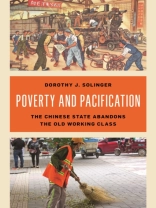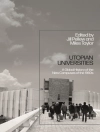This groundbreaking book powerfully humanizes the little-known urban workers who have been left behind in China’s single-minded drive to modernize. Dorothy Solinger traces the origins of their plight to the mid-1990s, when the Chinese government found that state-owned factories were failing in large numbers in the face of market reforms just as the country was about to enter the World Trade Organization. Under these circumstances, leaders urged firms to lay off tens of millions of previously lifetime-employed, welfare-secure, under-educated, middle-aged employees. As these dislocated people were left without any source of livelihood, the regime settled on a tiny welfare effort, the Minimum Livelihood Guarantee (dibao), to provide some support and, most important from the viewpoint of the leadership, to keep them quiet so that enterprise reform could proceed peacefully. Solinger explores the induced urban poverty that resulted and relates the painful struggle for survival of these discarded laborers. She also details the history and workings of the dibao and its missteps, as well as changes in policy over time. Drawing on dozens of interviews, this book brings to life the urban workers who have been relegated to obsolescence, isolation, and invisibility by China’s quest for modernity.
Dorothy J. Solinger
Poverty and Pacification [EPUB ebook]
The Chinese State Abandons the Old Working Class
Poverty and Pacification [EPUB ebook]
The Chinese State Abandons the Old Working Class
Cumpărați această carte electronică și primiți încă 1 GRATUIT!
Limba Engleză ● Format EPUB ● ISBN 9781538154960 ● Editura Rowman & Littlefield Publishers ● Publicat 2022 ● Descărcabil 3 ori ● Valută EUR ● ID 8257734 ● Protecție împotriva copiilor Adobe DRM
Necesită un cititor de ebook capabil de DRM












